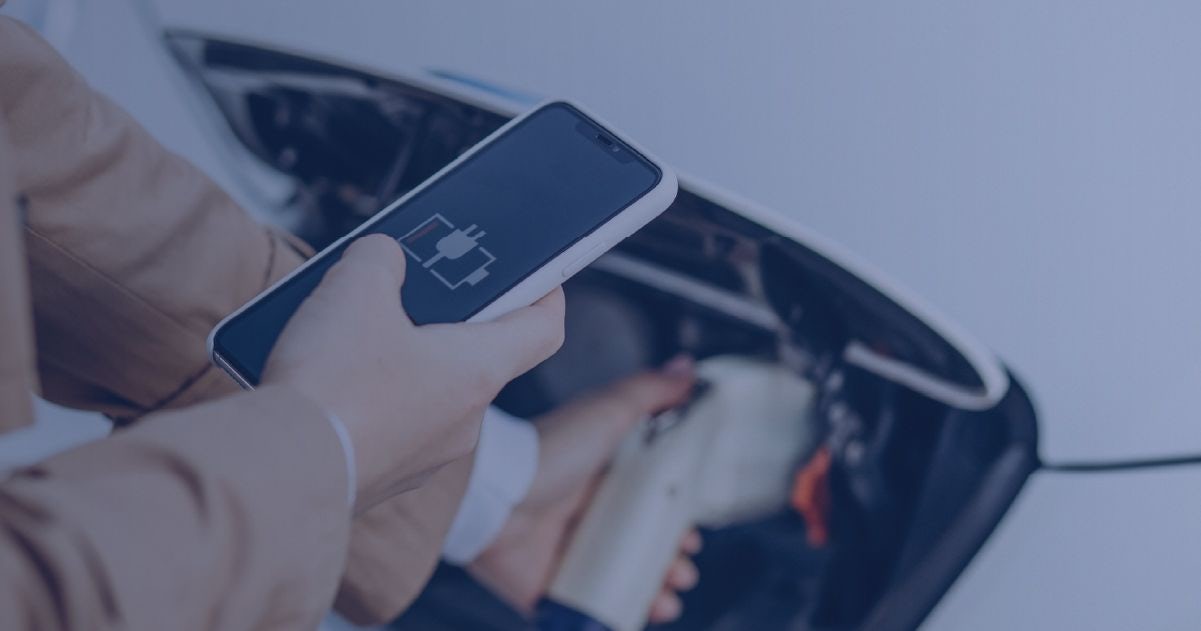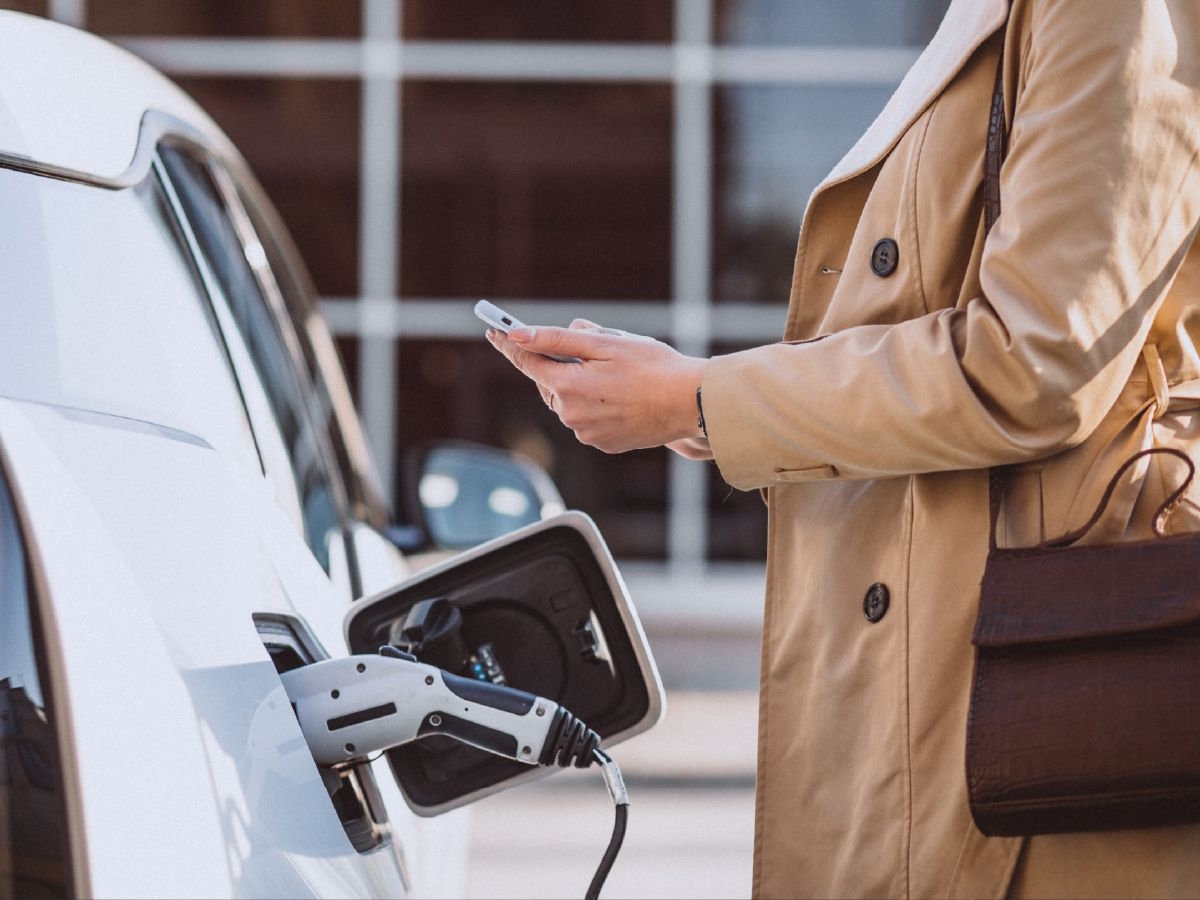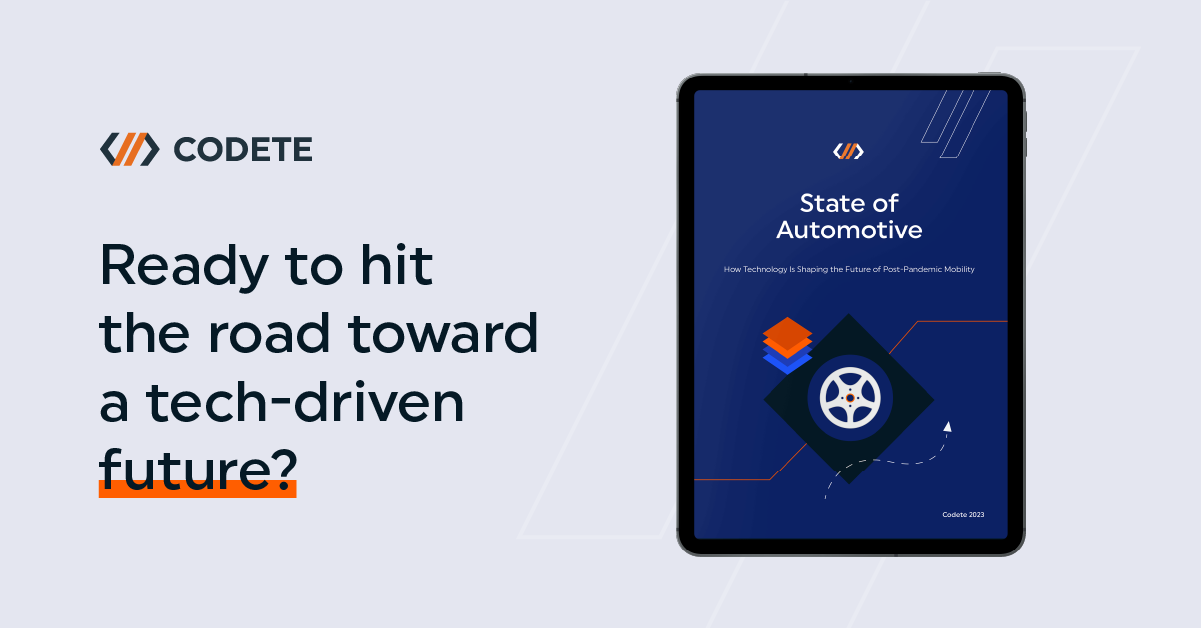Optimizing transportation with smart mobility is one of the key ways high tech transforms our lives and improves their quality. Intelligent transport systems, traffic management, fleet management, electric vehicles, autonomous vehicles, and ride-sharing have already changed urban areas in the past few years. And it’s just the beginning of the ride.
It may be a bumpy ride, but it’s worth making the effort as smart mobility has many benefits for particular communities and the environment as a whole. The overall positive impact covers things like:
- improving public transport systems,
- reducing traffic congestion and long commutes,
- decreasing car ownership,
- cutting pollution.
But what exactly does it mean to be smart on the road? What is smart mobility and which technologies propel its development the most? What are the most interesting and most common examples of intelligent transport systems? Let’s see.
Table of contents:
2. Smart mobility & intelligent transport systems – solutions
3. Optimizing transportation with high tech – key takeaways
Smart mobility in brief
Digital transformation fundamentally changes how businesses operate and provide services. But it also overlaps with the people’s need to live in a more balanced way – breathe fresh air, avoid traffic jams, increase road safety, lower noise levels, and pay less for getting around.
What comes up from these desires are smart mobility solutions that can be seen in more and more places around the globe. Smart mobility can be called a modern – flexible, safe, and efficient – attitude to how people travel from one place to another, with intelligent transport systems on board.
In short, smart mobility refers to „using modes of transportation alongside or even instead of owning a gas-powered vehicle. This can take on many different forms, including ride-sharing, car-sharing, public transportation, walking, biking, and more”.
Cutting-edge technologies used
Such versatility and flexibility require truly smart solutions. Some of the embedded technologies include:
- artificial intelligence and machine learning,
- ubiquitous computing,
- 5G networks,
- real-time monitoring
- Big Data data analytics,
- V2X (vehicle-to-everything),
- the Internet of Things,
- edge computing in transportation.
Implementing many cutting-edge technologies lets engineers and programmers integrate all modes of transportation into a unified network. It’s all simple for end users whose lives get easier with GPS, wireless communications, or contactless payments, but requires a lot of effort from technology companies.
Download now >>
To provide efficient solutions, firms often need to act collaboratively and compile pieces of information coming from various data sources, like micro-mobility services, mobile devices, connected cars, and public transportation. Processing huge amounts of real-time and historical data, and trying to address many problems, e.g., by providing last-mile solutions, is also in the mix.
Smart mobility & intelligent transport systems – solutions
Smart mobility – an immanent part of any smart city – is not only an innovative concept but also a set of very complex, down-to-earth, flexible solutions. They take many forms, with many new ones popping out regularly.
Let’s have a look at some of the ways optimizing transportation in smart cities is being made.
Using cars differently
Urban mobility and modern city transit are about limiting traffic congestion, air pollution, and noise levels, but that doesn’t mean getting rid of all cars and always using a smart bus or electric scooter instead. Of course, not everyone would be happy to do so, and cars (be they conventional or electric vehicles) will still be used, but in a smarter way.
A major smart mobility trend is a switch to not owning a car, but using it whenever needed and wherever possible. Car sharing, carpooling, car-hailing, and on-demand ride-sharing services (e.g., Uber and Lyft) are becoming increasingly popular, with the number of personally-owned cars poised to drop, eventually.
Reducing car ownership brings a huge relief to the environment – with one shared car estimated to replace 5-15 privately-owned ones. Car-sharing solutions are strongly supported by high tech – with enhancements such as dedicated apps, connected payments, online reservations, and many more.
Intelligent transportation systems (ITS)
Used primarily for efficient road transport, mobility, and traffic management, intelligent transportation systems implement ICT technologies to make transport better coordinated, smoother, and safer. Increasing road capacity, shortening travel time, warning users of problems they encounter, and suggesting alternative routes are other positive outcomes of applying ITS.
Some of the solutions and technologies used within ITC include smartphone-based rich monitoring, automatic security CCTV systems, connected toll gates, asphalt and infrastructure sensors, traffic signal control systems, parking guidance, vehicle re-identification, and automatic road incident detection.
Mobility-as-a-Service (MaaS)
With so many smart mobility solutions and tools available, it’s easy to get lost instead of reaching the goal faster. Luckily, Mobility-as-a-Service comes to the rescue, providing a single interface – or a joint digital channel – to help users get what they want quickly and enable informed decision-making.
Having transport-related services integrated into one comprehensive MaaS tool, people can easily access, use, and manage various types of mobility services promptly. From one single platform or account, they can plan all stages of their journey, book particular services (like calling a taxi or buying a train ticket), and pay for them right away.
Optimizing transportation with high tech – key takeaways
Making transportation smarter, safer, healthier, and more accessible is one of the key benefits of using high tech in cities. With smart mobility solutions, millions of people can enjoy numerous advantages of intelligent transport systems daily. However, these solutions may be difficult to implement at scale, and for now, can only be available in some major cities.
Smart mobility puts users’ comfort and undisturbed, common access in the very center. The solutions it provides are sustainable so the air and environment as a whole are relieved, too. Urban spaces get healthier and cleaner, but also more pleasant and comfortable to live in – with parking lots often transformed into parks, garden squares, or promenades.
All in all, smart mobility seems to have nothing but a positive impact on average people’s lives, although the transition period may be challenging for some of them. It also gives a huge potential for many businesses – provided they are bold enough to lead the way to optimize transportation with emerging technologies.
Want to enhance passenger experience and gain a competitive advantage in your area? If you, too, would like to use some cutting-edge technologies to make transportation in your country, city, or community smarter, contact Codete now.




